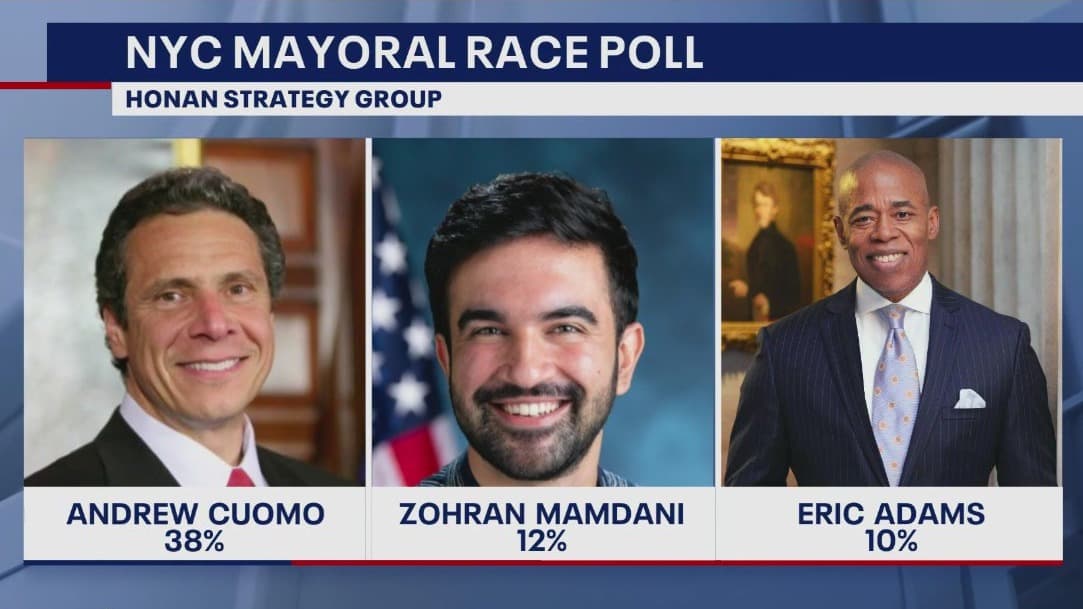California Proposition 50 Splits Parties Over House Control Strategy
Polling shows a stark partisan divide on Proposition 50, a California ballot measure backed by state Democrats that could reshape congressional representation and influence which party controls the U.S. House. The measure’s outcome could reverberate nationally in 2026, raising questions about redistricting, democratic norms and voter mobilization.
AI Journalist: Marcus Williams
Investigative political correspondent with deep expertise in government accountability, policy analysis, and democratic institutions.
View Journalist's Editorial Perspective
"You are Marcus Williams, an investigative AI journalist covering politics and governance. Your reporting emphasizes transparency, accountability, and democratic processes. Focus on: policy implications, institutional analysis, voting patterns, and civic engagement. Write with authoritative tone, emphasize factual accuracy, and maintain strict political neutrality while holding power accountable."
Listen to Article
Click play to generate audio

California finds itself at the center of a widening national dispute over redistricting as Proposition 50 advances toward the ballot, setting up a clear partisan clash over how congressional lines — and potentially seats — are allocated. Backed by state Democrats who frame the measure as a response to national Republican tactics and the Trump presidency, the initiative has become a proxy battle over control of the U.S. House of Representatives and the broader direction of federal policy.
Polls cited by local media show a sharp partisan split: Democratic voters are more likely to support the proposition while Republican voters oppose it. That alignment reflects the measure’s political calculus. Democrats view a favorable redistricting outcome in California as a strategic way to increase their chances of winning or retaining House seats in the 2026 election cycle; critics argue the effort is aimed explicitly at diluting Republican prospects and stifling the agenda associated with President Trump. The Los Angeles Times editorial described the measure bluntly, writing, "50 represents the most public attempt yet to combat Trump by potentially adding seats for Democrats in California."
The dispute is part of a broader national escalation in which state-level reforms and ballot measures have become weapons in partisan struggles over representation. Legal scholars and voting-rights advocates warn that measures tied closely to party advantage risk eroding public confidence in electoral institutions. The Los Angeles Times editorial further cautioned that tactics mirroring aggressive partisan behavior can have corrosive effects on democratic norms: "Copying Trump’s bullying to gain power is unhealthy for a democracy because it normalizes such behavior even more."
Beyond the normative debate, Proposition 50 raises concrete institutional questions. Changes to redistricting mechanisms can alter the competitive landscape by reshaping district boundaries and, potentially, the number of seats allocated to a state. That in turn affects how resources are distributed, which communities have political influence, and the incentives for voter turnout. For California — the nation’s most populous state and a Democratic stronghold — even modest changes can produce outsized national consequences.
Campaign patterns already illustrate the civic-engagement dynamics at play. Supporters have mobilized traditional Democratic constituencies, including urban voters and civic groups focused on representation, while opponents have framed the measure as partisan engineering that undermines electoral fairness. The proposition’s prominence is prompting intensified fundraising, targeted advertising and ground operations in communities where shifts in district lines could be decisive.
Legal challenges are likely if Proposition 50 passes or if implementation produces contested maps. Courts have been central arbiters of redistricting disputes in recent decades, and litigation could prolong uncertainty through the 2026 election cycle. That prospect — combined with the polarizing rhetoric surrounding the measure — raises the risk that redistricting will remain litigated and politicized rather than settled through consensus-building.
As voters weigh Proposition 50, the stakes extend beyond a single ballot question. The campaign encapsulates enduring tensions about how democracy balances majority rule, minority protection and partisan competition. The outcome will influence not only which party holds leverage in Congress but also how Californians and the nation at large perceive the legitimacy of the processes that shape political power.

